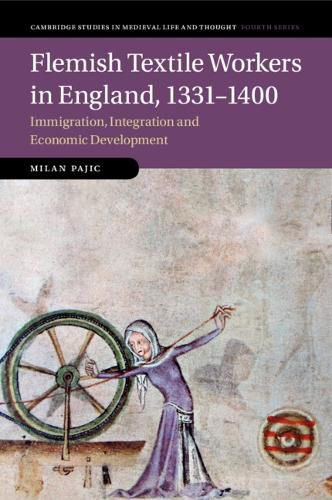Readings Newsletter
Become a Readings Member to make your shopping experience even easier.
Sign in or sign up for free!
You’re not far away from qualifying for FREE standard shipping within Australia
You’ve qualified for FREE standard shipping within Australia
The cart is loading…






In the fourteenth century, with the encouragement of King Edward III, textile workers from the Low Countries - predominantly Flanders but also Brabant - settled in England. Using extensive and original resources from both sides of the English Channel, Milan Pajic argues that the exponential growth of the English textile industry was due to the skill and influence of Flemish immigrants, challenging interpretations from a section of economic historians in the latter half of the twentieth century who concluded that immigrants did not contribute to the economic development of England. The book explores the geography of immigration, the reasons behind the movement of people, and the varied social encounters with local populations. In so doing it uncovers an important and vibrant history which provides essential historical context for contemporary debates on the free movement of people.
$9.00 standard shipping within Australia
FREE standard shipping within Australia for orders over $100.00
Express & International shipping calculated at checkout
In the fourteenth century, with the encouragement of King Edward III, textile workers from the Low Countries - predominantly Flanders but also Brabant - settled in England. Using extensive and original resources from both sides of the English Channel, Milan Pajic argues that the exponential growth of the English textile industry was due to the skill and influence of Flemish immigrants, challenging interpretations from a section of economic historians in the latter half of the twentieth century who concluded that immigrants did not contribute to the economic development of England. The book explores the geography of immigration, the reasons behind the movement of people, and the varied social encounters with local populations. In so doing it uncovers an important and vibrant history which provides essential historical context for contemporary debates on the free movement of people.